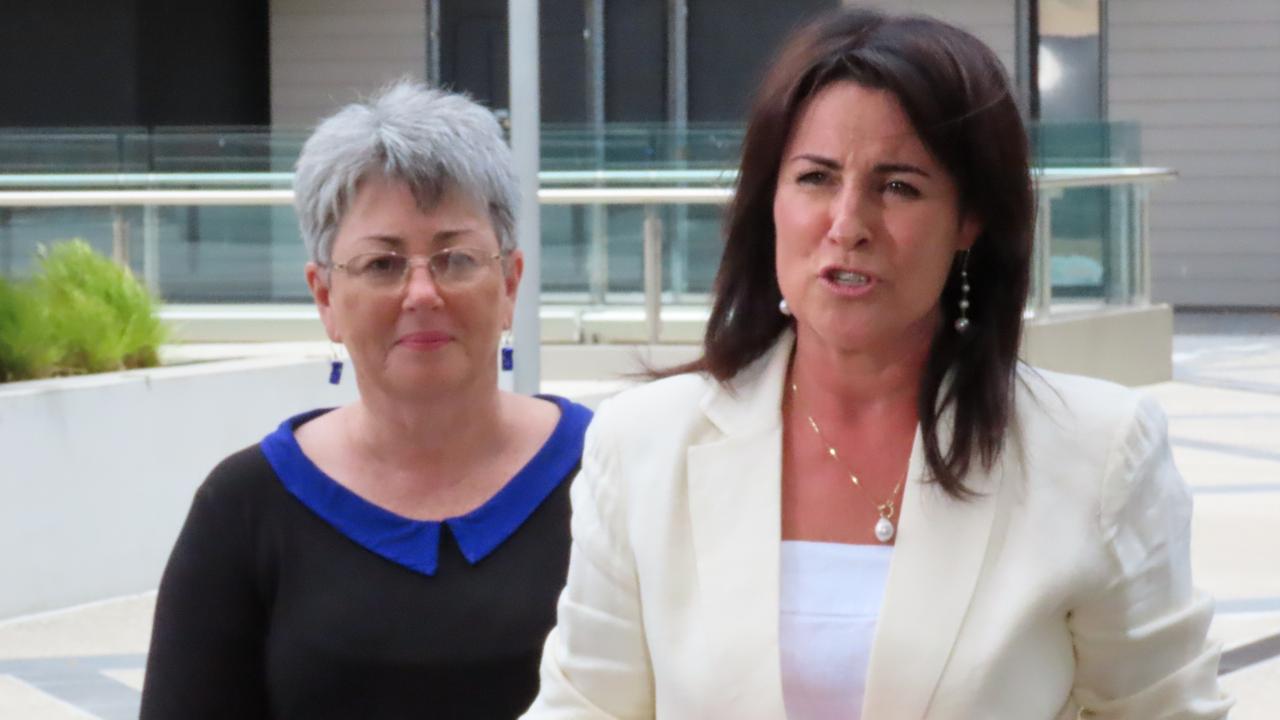Young students slipping through the gaps despite ‘nation-leading’ disability funding model
“I didn’t realise it would be such a fight for my son to get a basic education.” Tasmanian parents have hit out at the struggles they face to get the learning support their children need.

Education
Don't miss out on the headlines from Education. Followed categories will be added to My News.
TASMANIAN parents of children with language disorders have spoken about their anguish and exhaustion from having to fight an education system they say is failing their kids.
Disability advocates have joined the parents’ calls for independent scrutiny of how disability funding is allocated and greater opportunities for caregivers and medical experts to contribute to needs assessments.
“I didn’t realise it would be such a fight for my son to get a basic education,” said Hobart mum Elise Jeffery, whose eight-year-old son Harvey was stripped of his classroom support when a new funding model came into effect last year.
Harvey’s sunny demeanour belies the fact he suffers from a severe language disorder called childhood apraxia of speech (CAS), which affects his ability to make and process speech sounds. He also has a mild intellectual disability.
“Something that will take a child without apraxia a week to grasp will take Harvey months of repetition. Nothing in language is intuitive for Harvey, he must literally be taught every single sound, every single word,” Ms Jeffery said.
South Hobart Primary has been fighting for Harvey’s funding — which previously provided up to 50 minutes of classroom support each day — to be reinstated.
After taking five months to review his case, the education department granted Harvey just one hour a week.
“We have paediatric and speech pathology reports outlining what is required to meet Harvey’s needs for an education, yet the department seems to be able to ignore this professional advice,” Ms Jeffery said.
“It’s devastating to know that if he doesn’t get the support he needs now, this disability will persist through his lifetime and impact on all aspects of his daily life.”
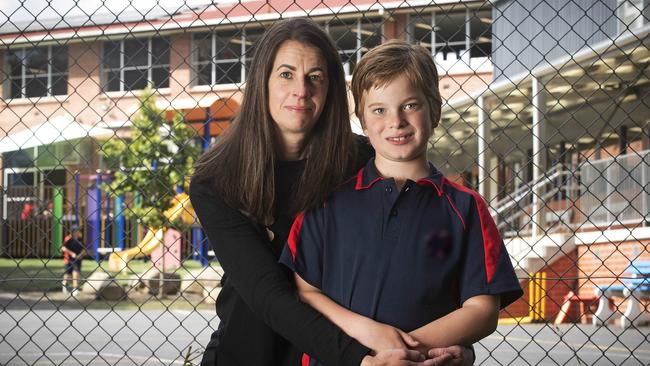
Helena Gillham’s relief was mixed with anger when her daughter Ruby, in her final year of primary school, was finally granted the special needs funding her family, teachers and doctors always knew she needed.
“It was that combination of finally feeling validated, but also anger at the lost time and lost opportunity and that feeling of begging for help,” Ms Gillham said.
Had Ruby, who has a severe language disorder, been granted regular one-on-one support in the classroom throughout her schooling, Ms Gillham is certain she would not have been left so far behind her Bellerive Primary School peers.
Instead, Ruby is in the daunting position of starting high school with the literacy level of a grade one student.
“Parents should have the right for decisions made by the school to be reviewable by an independent body,” she said.
“It was constantly on my mind when I was fighting for things for Rubes that, if it’s hard for us, how many other kids are going unnoticed?” Ms Gillham said.
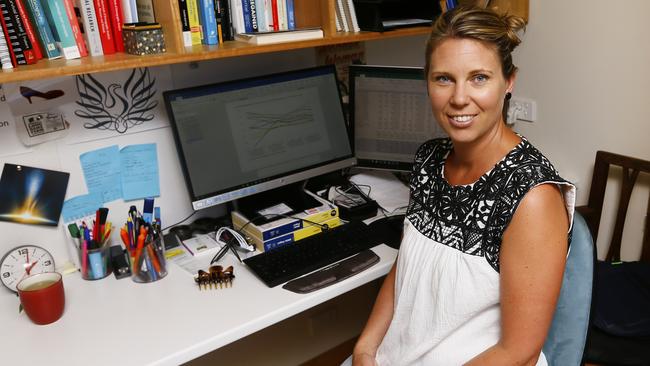
Prominent Tasmanian academic Lisa Denny has reluctantly left the state so her son Rory can attend a specialist school for children with language disorders in Brisbane after he was unable to get the support he needed in Tasmania.
“Without specific intervention and support, children with language disorders will struggle to achieve their potential,” Dr Denny said.
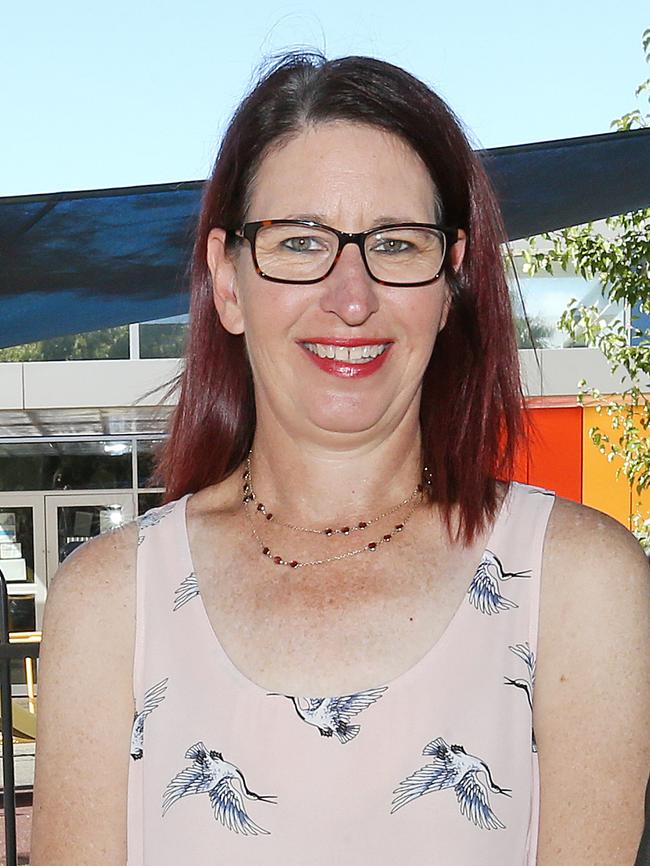
Disability education reform advocate Kristen Desmond said she still had faith in the new “Educational Adjustments model” for disability funding in schools, which the state government describes as nation-leading.
However, Ms Desmond said she was concerned it was not being rolled out properly and was surveying families in order to lobby the government for more oversight.
“I’m surveying families to get some data around the implementation and to see whether students who should be receiving funding are getting the funding that’s appropriate to them,” Ms Desmond said.
Education Minister Jeremy Rockliff said 2000 more students were receiving tailored support under the new model and all funding “adjustments” were detailed in students’ learning plans, which were “a product of consultative discussions with students, parents/carers, teaching and professional support staff”.
Parents can request a review of their child’s learning plan at any time, Mr Rockliff said.
How ‘speechies’ can make all the difference
AT university, school principal Brendan Gill says he learnt virtually nothing about what he calls the “building blocks of language”.
“I think literacy teaching practices can fail students by not embracing evidence and that has a lot to do with teacher education and ideology,” Mr Gill said.
At John Paul II Catholic School at Clarendon Vale, he and his fellow teachers are witnessing the beginnings of a transformation in student behaviour and literacy outcomes, springing from a collaboration with Hobart speech pathologist Lisa Johnson and a dedicated focus on the basics of language.
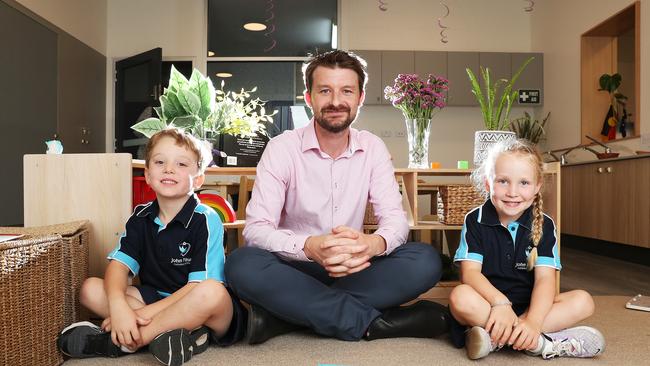
“Some schools don’t like having external experts coming in, but we embrace it,” Mr Gill said.
“We’ve been working closely with Lisa to upskill our staff. Speech and language therapists are helping us bridge that disconnect between the literacy research and what happens in the class rooms.”
In recent years the school has suffered from behavioural issues and declining enrolments, but this year enrolments were up to 170 from 145 last year.
Students who need extra support receive one-on-one tutoring and the school recently started collaborating with a childcare provider to extend early literacy programs to three-year-olds.
“Experts are now saying grade one is too late to assess these issues and our hope is we can get onto language issues earlier,” Mr Gill said.
“When we think about how we can best help our students in 20 years’ time, it’s teaching them to be literate. We have to emphasise that beyond anything else.”
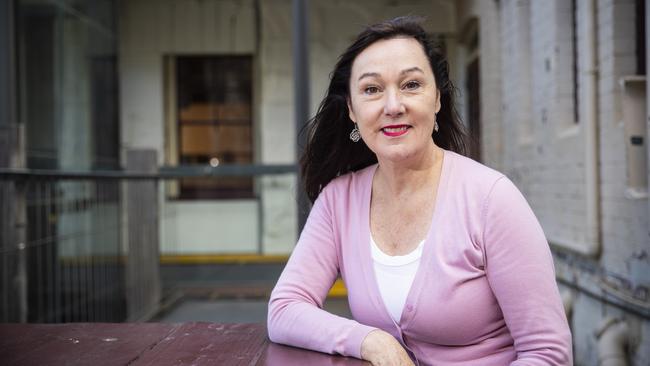
Speech pathologist and literacy advocate Rosalie Martin, who runs the charity Connect 42, said schools around the world were starting to see the benefits of working with “speechies”.
“There is a body of evidence about children with language development problems and communication problems and the power of speech pathologists working collaboratively with teachers in classrooms,” Ms Martin said.
“There are just so many examples now. What we would like to see is that this science-based process is equitably everywhere and is not dependent on the personalities who happen to be leading a school.”
She urged the state government to fund more early intervention literacy programs in state schools as a matter of urgency, but conceded Tasmania was struggling with a shortage of speech therapists.
“I know there are some schools we just can’t get to and there are not enough speech pathologists to get around to all of the children who have NDIS funding. In my private practice, we haven’t been able to keep up with demand and we haven’t been able to engage enough speech pathologists,” Ms Martin said.
A University of Tasmania course was being designed to train specialists locally, Ms Martin said.
Tasmania’s state school system employed nearly 50 full-time equivalent speech and language pathologists as of last June.


